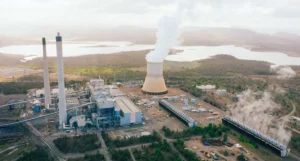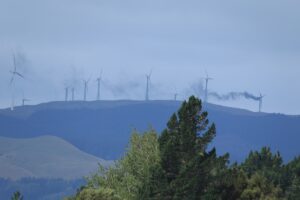Less than a month after the Abbott government committed billions of dollars in funding to prop up Australia’s coal industry, the world’s major G7 democracies have set a deadline for weaning their economies off carbon intensive fuel sources like coal, oil and gas – and to help developing countries do the same – offering one of the clearest signals yet that the age of fossil fuels is coming to an end.

At the close of the weekend Summit in Germany, the leaders of the Group of Seven nations – Canada, France, Germany, Italy, Japan, the UK and the US – pledged in a communique to develop long-term strategies to combat climate change, including abandoning fossil fuels by the end of the century.
“We commit to doing our part to achieve a low-carbon global economy in the long-term, including developing and deploying innovative technologies striving for a transformation of the energy sectors by 2050,” the communique said.
Key parts of the pledge included a reaffirmation of the joint commitment to provide $US100 billion a year by 2020 towards climate mitigation, as well as commitments to accelerate access to renewable energy in developing countries and to incentivise low-carbon investments using effective policies and actions, including carbon market-based and regulatory instruments.
The G7 commitments – although a bit vague in parts, and perhaps lacking somewhat in ambition and urgency – have been hailed by many as an important precursor to the UN climate meeting in Paris in December.
They have also significantly increased pressure those developed-world leaders, like Tony Abbott, who have so far failed to commit to – or even outline – any serious policy measures to help limit global warming to 2°C above pre-industrial levels.
Instead, Abbott’s Coalition government gives every impression of doing the exact opposite: dumping Australia’s carbon pricing mechanism, winding back its renewable energy target, systematically undermining and defunding the low-carbon economy, and tethering the economy even more firmly to coal.
“The G7 has put a stark dividing line between countries taking climate change action and those few still bound to fossil fuel vested interests,” said Blair Palese, co-founder and CEO of 350.org Australia. “Make no mistake, this is a pivotal moment in history and right now, Australia is on the wrong side.
“Abbott’s intractable commitment to developing more coal and gas can only leave us with a truly ‘stranded economy’ that also threatens the global climate. Our region is one of the most vulnerable to climate change and Australia is already suffering some of the worst impacts,” Palese said.
“Australia is out of step with other major economies – both in the industrialised world and I should say and the developing world too,” the director of strategy and policy for the Union of Concerned Scientists, Alden Meyer, told ABC Radio program AM on Tuesday.
“There’s a clear trend globally away from (emissions) intensive (fuel) sources like coal and that obviously has major implications for Australia’s economic future if it doesn’t make the appropriate adjustments,” he said.
Oil and gas majors – both internationally and in Australia – have also launched a campaign against coal, promoting the better emissions profile of gas-fired generation, although Karel Beckman from Energy Post questions if there is a solid rationale for that approach in this analysis.
But making these “appropriate adjustments” will not be easy for Australia, and will get harder and harder the longer we leave it, a new Climate Institute report has warned.
“Australia’s historic failure to implement or sustain policies to accelerate emissions reductions means we have more to do to close the gap between us and other nations,” says the report, released on Tuesday.

“The sooner we start to catch up with others the better off we will be (see table below). Further delay will just leave us further behind and needing to change faster to match others,” it said.

China, for example – the world’s biggest polluter – could peak more than five years earlier than expected, according to a new report out of the UK.
The report, from the Grantham Research Institute on Climate Change and the Environment and the ESRC Centre for Climate Change Economics and Policy at the London School of Economics, says China’s greenhouse gas emissions are unlikely to peak as late as 2030, the upper limit set by President Xi Jinping in November 2014, but instead were much more likely to peak by 2025.
“They could peak even earlier than that,” the report said, describing a transformation that had “profound implications for the global economy,” while also greatly increasing the prospects for keeping carbon emissions within relatively safe limits.
The Grantham report findings coincide with the release of new data showing that China’s coal imports slumped 41 per cent in May, from a year earlier to 14.25 million tonnes and were down sharply on April despite industry expectations of a pick-up in seasonal demand.
Total imports in the first five months of the year reached 83.26 million tonnes, down 38.2 per cent compared with the previous year, according to preliminary data from China’s General Administration of Customs. Australia, or course, is a major exporter of thermal coal to China.







